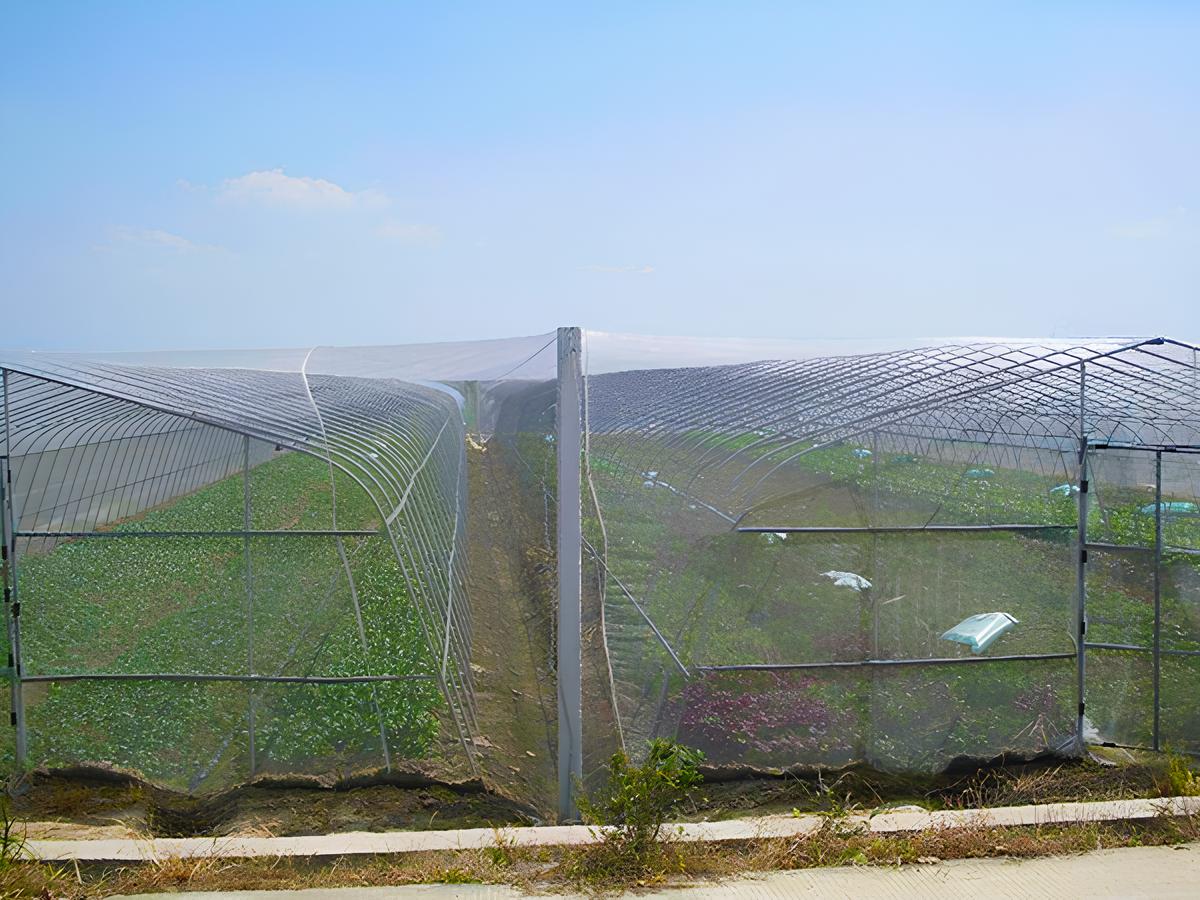Have you ever used window screens or mosquito nets to keep flies and mosquitoes out of your home? This common household practice has a similar application in agriculture: using insect nets. These nets act like giant “mosquito nets” for your vegetables and fruits, protecting them from pests. Especially during the seedling stage, greenhouse spring production, and the pest-prone summer and autumn seasons, using insect nets can reduce pesticide use and improve the yield and quality of your crops. This is undoubtedly an economical and efficient physical pest control technology.
In this article, we will explore the nine benefits of using agricultural insect nets to help you understand this practical agricultural tool better. But first, let’s understand what an agricultural insect net is.
What is an Insect Net?
An insect net is made of polyethylene, woven into a mesh structure similar to window screens. It has high tensile strength, heat resistance, water resistance, corrosion resistance, and is non-toxic and odorless.
Colored insect nets can also reflect and refract light, repelling pests to some extent. Using insect nets at greenhouse vents can effectively block pests such as cabbage moths, aphids, and diamondback moths, significantly reducing pesticide use and improving crop quality.
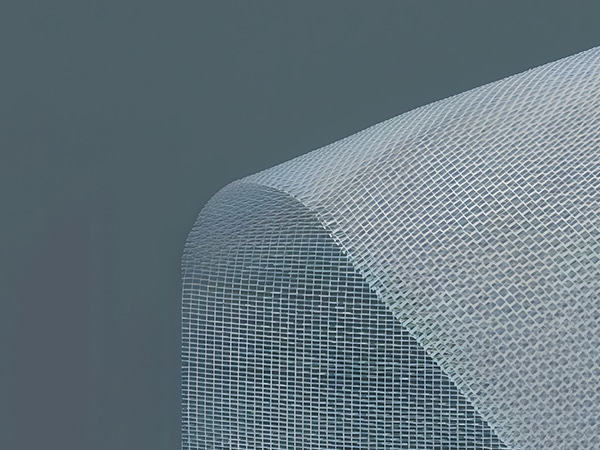
Insect nets sample produced by INSONSHADE
Types and Lifespan of Insect Nets
When choosing insect nets, several key parameters need attention. First is the width, commonly available in 3.3 feet, 3.9 feet, 4.3 feet, 4.9 feet, and 6.6 feet. Next is the mesh size, with common options being 25, 30, 40, and 50 mesh. The smaller the mesh size, the denser the net. In terms of color, insect nets come in white, black, and silver-gray. The recommended specifications are 25 to 30 mesh and 3.3 to 4.9 feet in width. These nets typically last 3 to 5 years.
For color choices, black insect nets prevent pests and provide some shading, making them ideal for summer use. Silver-gray insect nets are particularly effective at repelling aphids, making them ideal for protecting fruits and vegetables. Choosing the right insect net based on specific needs can increase crop yield and quality.
9 Benefits of Using Agricultural Insect Nets
Using insect nets in agriculture offers numerous advantages that go beyond basic pest control. These nets help in various aspects of crop management, enhancing the quality and quantity of your yield. Let’s delve into the nine significant benefits of using insect nets and how they can revolutionize farming practices.
1. Prevent Pest Damage
Insect nets act as a physical barrier, preventing pests like aphids, leaf miners, cabbage caterpillars, diamondback moths, and whiteflies from entering and damaging your crops. By stopping these pests, you avoid the need for chemical pesticides, leading to healthier vegetables. Additionally, preventing pests reduces the chances of secondary infections and diseases that pests often carry, ensuring your crops remain robust throughout their growth cycle.
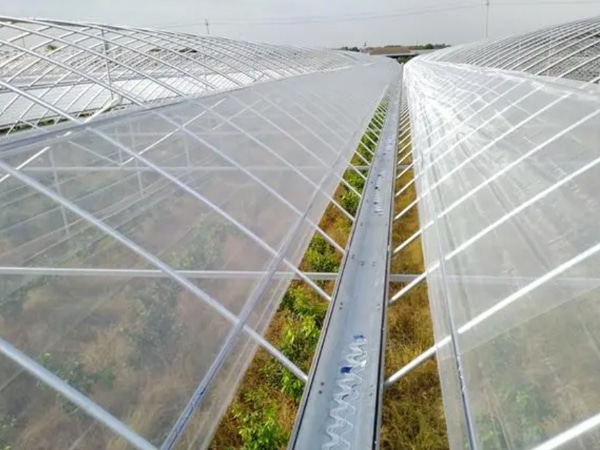
Orchard Uses Insect Nets
2. Regulate Greenhouse Temperature
Insect nets help maintain optimal temperatures inside greenhouses. Research shows that during hot months, they keep midday temperatures about 1°C cooler than outside, which protects plants from heat stress. They can keep the greenhouse warmer in cooler seasons, preventing frost damage. This temperature regulation extends the growing season and enhances plant growth, making your greenhouse more productive year-round.
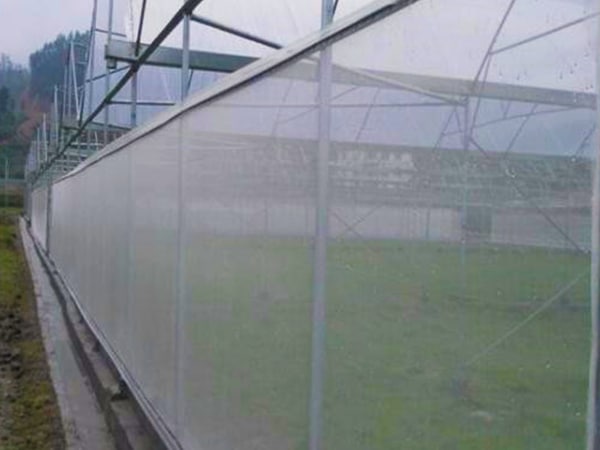
Insect Netting Installed on Greenhouse Sides
3. Block Strong Light
Intense summer sunlight can damage delicate crops, causing sunburn and inhibiting growth. Insect nets provide shading, diffusing the light and protecting plants from harmful UV rays. This controlled light environment promotes steady growth and prevents the scorching of leaves, leading to healthier and more vigorous plants.
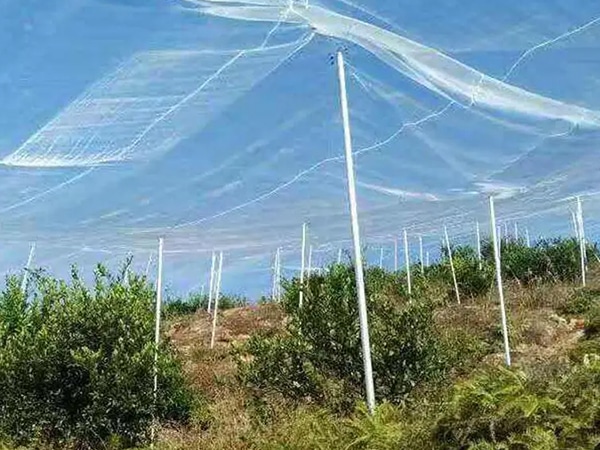
Overhead Insect Net Structure
4. Reduce Pesticide Use
By physically blocking pests, insect nets reduce the need for chemical pesticides. This lowers costs and minimizes the risk of pesticide residues on vegetables. Reduced pesticide use helps maintain soil health and protect beneficial insects like pollinators, which are crucial for the ecosystem and the pollination of many crops.
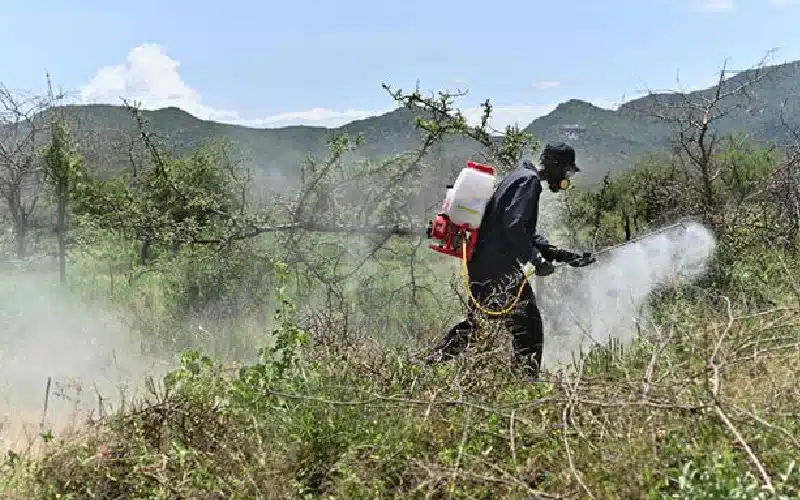
Spraying insecticide
5. Improve Quality
Vegetables grown without pest damage and excessive pesticide use are generally of higher quality. They look and taste better because they do not produce bitter or astringent compounds in response to stress. This higher quality makes your produce more appealing to consumers and can fetch a better market price.
6. Increase Yield
Protecting crops from pests and diseases naturally enhances their growth and productivity. Insect nets help maintain optimal growing conditions, leading to higher yields. Healthier plants produce more fruits and vegetables, increasing your overall harvest and profitability.
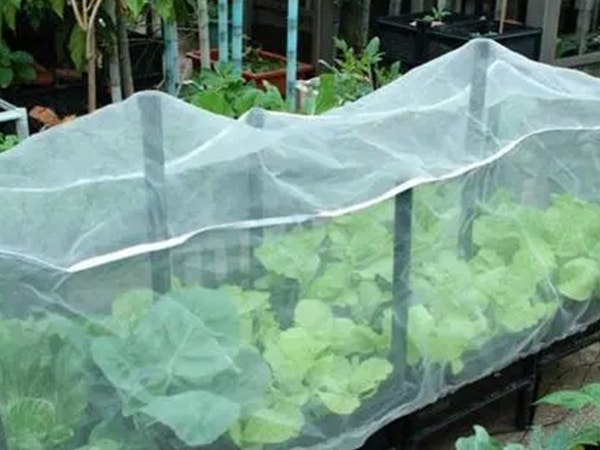
Insect Netting Used in Garden
7. Protect the Ecosystem
Overuse of chemical pesticides disrupts the ecological balance, killing pests and beneficial organisms. Insect nets provide a sustainable pest control method that helps maintain biodiversity. By reducing chemical inputs, you support the health of the surrounding environment and contribute to long-term ecological sustainability.
8. Prevent Hail Damage
Insect nets with high tensile strength can protect crops from hail damage. They act like a shield, absorbing the impact of hailstones and preventing them from damaging delicate plants. This protection is crucial in regions prone to sudden hailstorms, ensuring your crops remain unharmed and continue to grow.
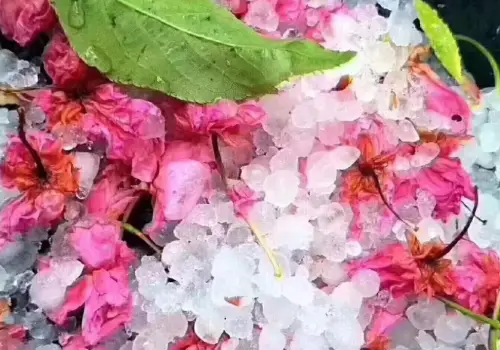
Hail damaged flowers
9. Prevent Bird Pecks
Birds can cause significant damage to crops by pecking at fruits and seeds. With their fine mesh, insect nets effectively block birds from accessing your crops. Unlike wider-mesh bird nets, these insect nets prevent birds from entering while ensuring they are not harmed, striking a balance between crop protection and wildlife conservation.
Conclusion
Insect nets are an invaluable tool in modern agriculture, offering many benefits that enhance crop protection, quality, and yield. By integrating these nets into your farming practices, you improve your production and contribute to a more sustainable and eco-friendly agricultural system. For the best insect net solutions, consider contacting INSONSHADE to meet your needs.
